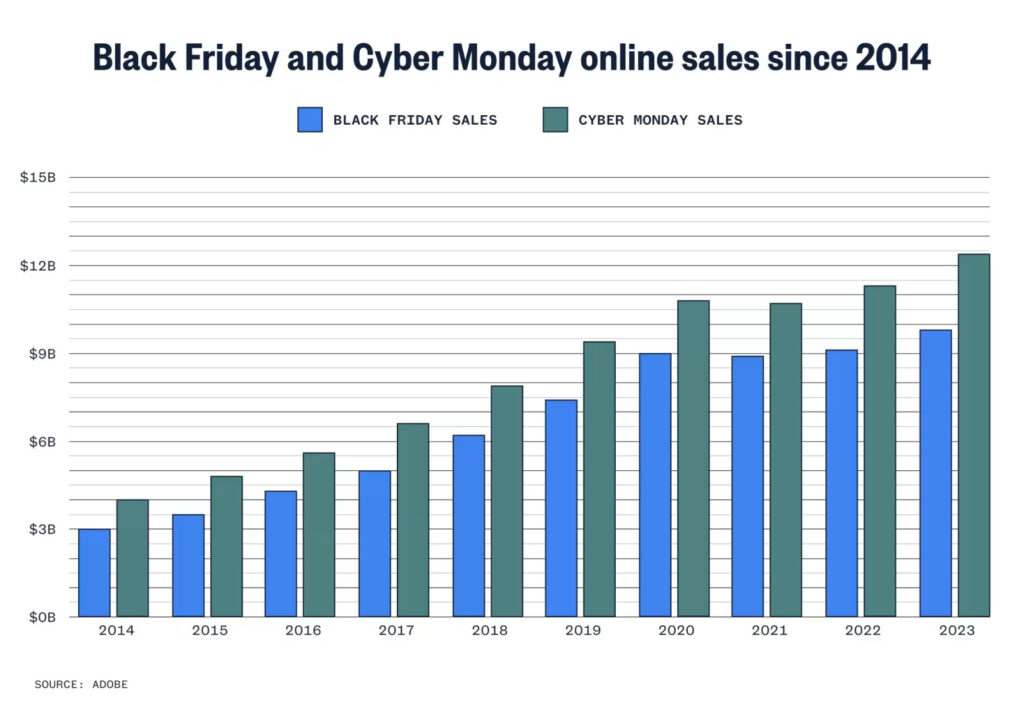
Most people remember their memories of Black Friday. The rush of shoppers feral to find $49 TVs and game consoles that’ll be the best to grab for the holiday season.
From its coining in 1869 to its presence in modern American consumerism, Black Friday allows shoppers to enjoy a good sale and engage in greater discounted items, aiding a consumeristic boost in the American economy. It also allows businesses to gain market share by bringing people to their stores.
However, most consumers nowadays aren’t engaging in Black Friday in the same ways consumers of the past used to.
According to a chart provided by Adobe for NBC News, Black Friday sales have slightly increased from 2014 up to $9 billion in revenue but still fall short compared to the now popular Cyber Monday, which pulls an income of approximately $12 billion.
More shoppers are purchasing these items online, which is largely an after-effect of the COVID-19 pandemic, which causes customers not to need to go into the store to purchase these deals. Furthermore, these deals last longer than the one day of sales that Black Friday used to be, now lasting the whole month of November.
Angeli Gianchandani, a practitioner in Residence of Brand Marketing at the Pompea College of Business at the University of New Haven, discusses with USA Today how the concept of Black Friday has evolved and now could be considered “Black November” with the majority of the deals lasting through the month.
Even consumers have seen this noticeable shift in business practice over the years.
Raven Brooks, a Florida State University alum with a B.S. in Marketing, discusses how the shopping gimmick has changed since she grew up.
“Deals happen earlier and earlier nowadays, spanning the whole week rather than just the day of, and people shop online way more, so stores are surprisingly calm on Black Fridays. Also, the deals aren’t great, with stores only having 20-40% off on items”, Brooks continued.
The lack of significant discounts and fanfare behind Black Friday has caused the consumer holiday to lessen in scale and become phased out more as a monthly slew of sales rather than a single day filled with deals.
Before Black Friday officially starts this year, consumers have already started rolling out their sales with Best Buy, Walmart, and more rolling out their doorbusters. Other online consumers have had large sales events prior to November, such as Amazon Prime Days.
Truly, with how consumerism can change and how Generation Z interacts with the historic shopping day, it can either change the tides of Black Friday or make more consumers plugged into Cyber Monday and the deals before.
Source link








Leave a Comment